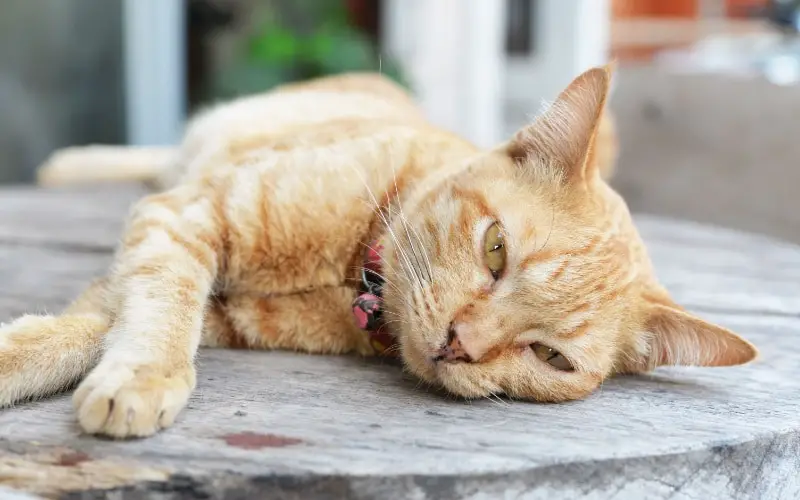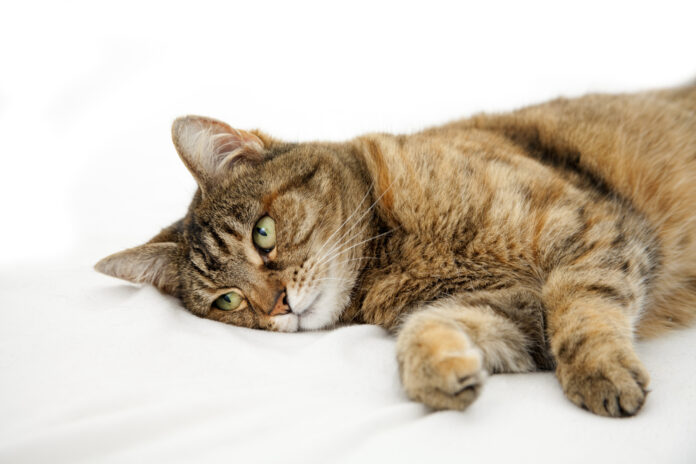Last Updated on July 2, 2021 by Fumipets
Unhappy cat behaviour may be very apparent at times. Hissing, running, and crouching are all expressions of fear. However, your cat may sometimes display more subtle indications that they are dissatisfied or unwell than you would expect. Understanding cat behaviour is an important aspect of providing proper cat care. As a cat owner, it’s important to understand how to identify these symptoms so that you can determine whether or not your cat is sad or otherwise distressed. In this manner, you can recognize these signals and offer your four-legged companion the greatest possible life experience.
Read on to discover the unmistakable symptoms of an unhappy cat!
Cat Body Language
It is important for cat owners to get acquainted with the body language of their cats in order to detect more subtle signs of unhappy cat behaviour. If your cat’s ears are pinned back and their hair is standing on end, he or she is most likely unhappy. In addition, there is a unique “cat tail language.” If your cat’s tail is tucked instead of raised high, it may be indicating that he or she is irritated, furious, or afraid. And, of course, if your cat is limping, there is a good possibility that they are injured, and you should take them to the veterinarian as soon as you possibly can.

Vocalizations
Despite the fact that cats cannot communicate verbally, it is nevertheless essential to pay attention to what they “say.” Although vocal signals like as low-pitched yowling are pretty clear indications, many people are unaware that purring may also be a sign of an unhappy cat’s state of mind. Sometimes, your cat’s purring may be an indication that she is attempting to soothe herself. Changes in your pet’s normal vocalizations are usually the most reliable indications that anything is amiss with him or her. Your veterinarian should be contacted if your usually noisy cat becomes silent, or if your generally quiet kitten becomes loud.
Low Energy Levels
Lethargy is something that many sad cats, as well as many unhappy people, experience. Cats naturally sleep a lot, but cats that sleep much more than normal may be sick or sad, as shown by their excessive sleeping. Unusually low energy levels in cats are a warning sign of sad cat behaviour and may indicate a mental or physical issue.

Lack of Enthusiasm
Another method for determining whether or not your cat is sad is as follows: One characteristic that melancholy cats and depressed humans have in common is a lack of excitement for their normal activities and hobbies. Cats that are unhappy may exhibit signs such as a lack of appetite or disinterest in their favourite toys. Alternatively, they may abruptly cease to give you headbutts and other expressions of love.
Aggression
Another example of unsatisfactory cat behaviour is outright aggression. Some cats just prefer their independence, but if your cat is usually the sociable and loving kind, there may be something wrong. Give your cat some room if you can. Afterwards, if your cat continues to shun human contact, you should consult with a veterinarian.

Disruptions from the Normal Routine
Cats, like exuberant children, need routine! When their daily activities follow a regular routine and schedule, they are more likely to thrive. Cats that suddenly depart from their normal routines may be suffering from some kind of discomfort or illness. Your cat hasn’t been grooming himself in a while. Is it possible that they are not using their litter box? Is it possible that they have abandoned their regular sleeping spot? If you responded “Yes” to any of these questions, you should seek medical attention immediately. Disruptions from normal patterns are a frequent occurrence in the behaviour of sad cats.
Change in Eating Habits
Food is essential for the good maintenance of any animal. Humans, as well as your pet, are subject to the same limitations. The happiness of your cat will always have an impact on their appetite for food, which will include their favourite meal. The amount of food consumed by these may even pets rise at times. Nonetheless, all of these suggest that you have a depressed cat that is losing weight or gaining a significant amount of weight. A healthy cat is a happy cat, and if your cat is happy, you will be a happy owner.

Cat Spray or Urine Mark on the Floor
First and foremost, cats are prone to spraying pee marks on their fur. In most cases, this is simply because they are marking their territory, which is very typical behaviour for animals that live in social groups of any kind. Another possible explanation for your cat spraying at the smallest opportunity is that he or she is depressed or unhappy in some way.
Cat spraying is often seen as a rebellious behaviour, although this is not always the case, as the American SPCA has explored extensively. True or not, cats like being surrounded by their own smell, which is why they use pee spray to achieve this effect. Using self-cleaning kitty litters and vinegar will be beneficial if this is the case with your cat. Vinegar is an acid that neutralises the alkaline ions that develop in dried urine stains, so it will be useful in this situation.
Hiding
Every now and then, you may discover your cat curled up in a cosy nook, napping or just relaxing. However, if this is happening more and more often, you may want to check into it more thoroughly. Cats like hiding because it adds to their sense of mystery. They are not known for wearing their emotions on their sleeves, and this is exacerbated when they are ill or sad. This concealing to lead may be dangerous at times.
They tend to grow more frightened and withdraw in order to keep that vulnerable emotion hidden from you or to just protect themselves from you. If your cat is hiding more often than normal and you are unable to determine why, you should take him to the closest veterinarian for expert assistance. It is possible that concealing will lead to running away in certain cases. If you discover that your cat is going missing on a regular basis, there are a few excellent alternatives to consider.

See a Veterinarian Immediately!
We hope this has provided you with a better understanding of how to determine whether your cat is sad. If your cat’s behaviour is exhibiting symptoms of sickness, chronic stress, or depression, contact your veterinarian immediately for assistance. They may provide suggestions for adjustments to your daily routine or medical treatment to ensure that your kitty is happy and healthy.


















